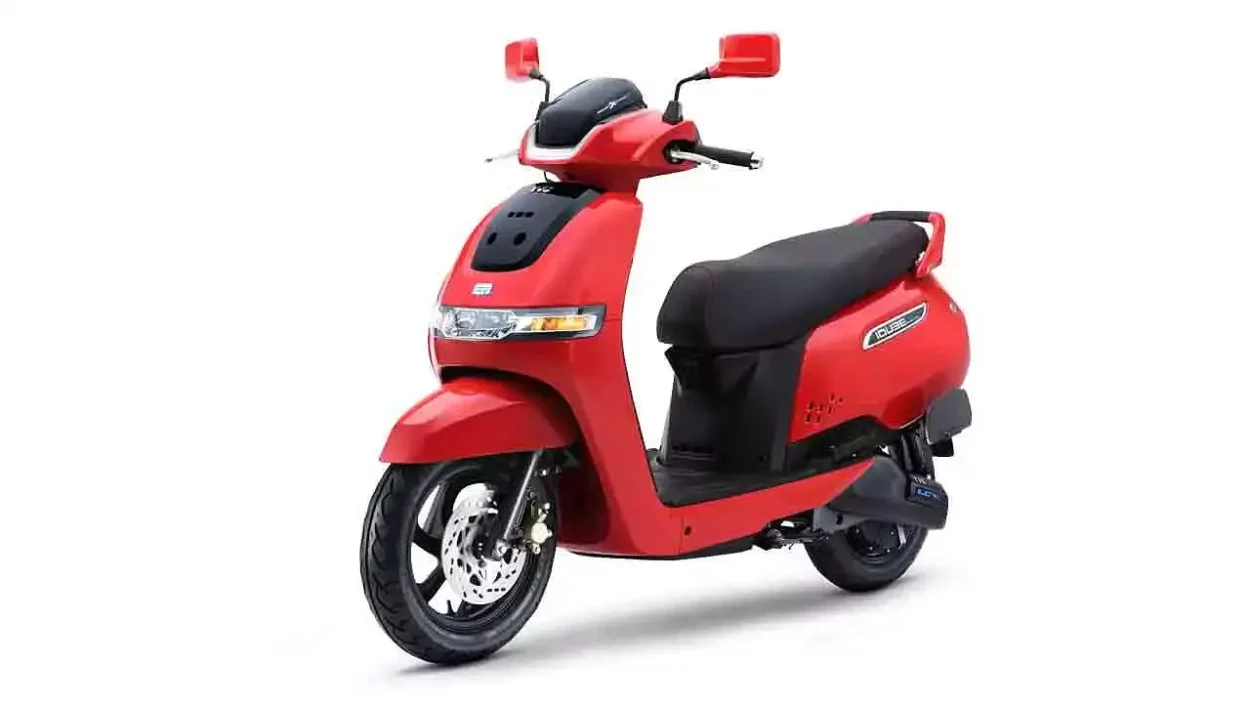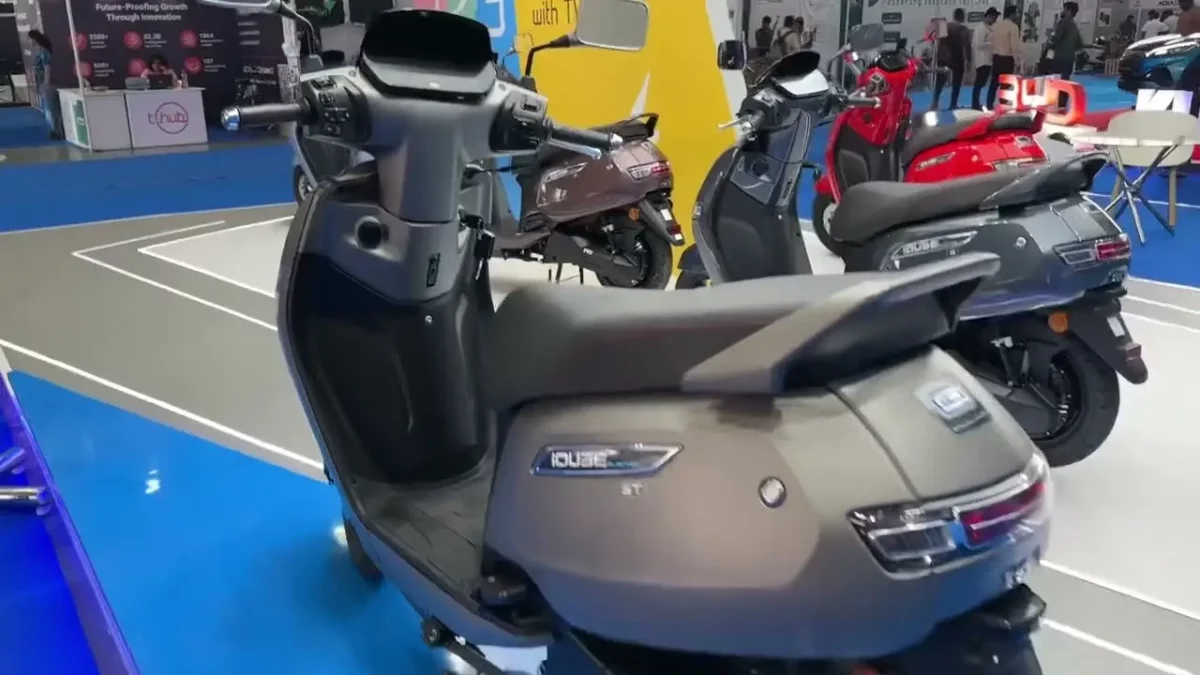In the bustling market of electric vehicles, the TVS iQube stands out as a formidable contender, achieving a significant milestone with sales exceeding 1.5 lakh units, thus establishing a robust presence in the green mobility arena.
The TVS iQube is offered in two variants: the iQube Standard priced at Rs. 1,37,890 and the iQube S at Rs. 1,49,862. This pricing strategy places the iQube in a competitive position in the market, making it an accessible option for those looking to make the shift to electric.
At first glance, the iQube is deceptive in its appearance—mirroring the design of a traditional scooter, it may not immediately strike as an electric model. This familiar aesthetic could appeal to consumers hesitant to adopt newer designs, offering them a sense of comfort with the change.
When it comes to its features, the iQube is not shy of modernity. It boasts a decent range of 75 kilometers per charge, suitable for daily commuting needs. The fusion of traditional design with contemporary features has been one of the scooter’s most appealing factors.
However, no innovation comes without its drawbacks. The iQube takes five hours to charge fully, a duration that may seem lengthy for those with fast-paced lifestyles. Additionally, its availability has been limited to Bengaluru, restricting its reach to a broader audience craving sustainable transport solutions.
Delving into the specifications, the iQube is equipped with a motor that can deliver a maximum power of 4400 W and a rated power of 3000 W. It offers a promising range of up to 100 km and can reach a top speed of 78 kmph. With Eco and Power riding modes, users can tailor their riding experience according to their needs, while the 5-hour battery charging time demands some planning for daily use.
Nishank Shukla’s review reflects a concern echoed by potential buyers regarding the price. He articulates a call to the company to reconsider the pricing to make the iQube more affordable, believing that such a step could propel the scooter to the number one position in India.
Shivam Shukla’s comments provide a more analytical perspective, suggesting that while it may be too early to fully assess the iQube’s performance, its 2.2 kW battery and city-appropriate range put it a notch above other options, especially those repackaged from overseas markets.

Rajib Kumar Subedi shares a firsthand account, noting that since his father’s purchase on 26th May 2023, the iQube has delivered impressive power and range. Interestingly, he observes that the range can reach up to 105 KM when riding solo, although this figure drops when carrying a pillion.
The TVS iQube’s entry into the electric scooter market represents a blend of innovation with a nod to traditional design. Its performance and sales figures signify a breakthrough, especially in a market segment where consumers are increasingly conscious of both the environmental footprint and the economics of their vehicles. While there are areas for improvement, the iQube’s journey reflects a promising future for electric mobility in India.
